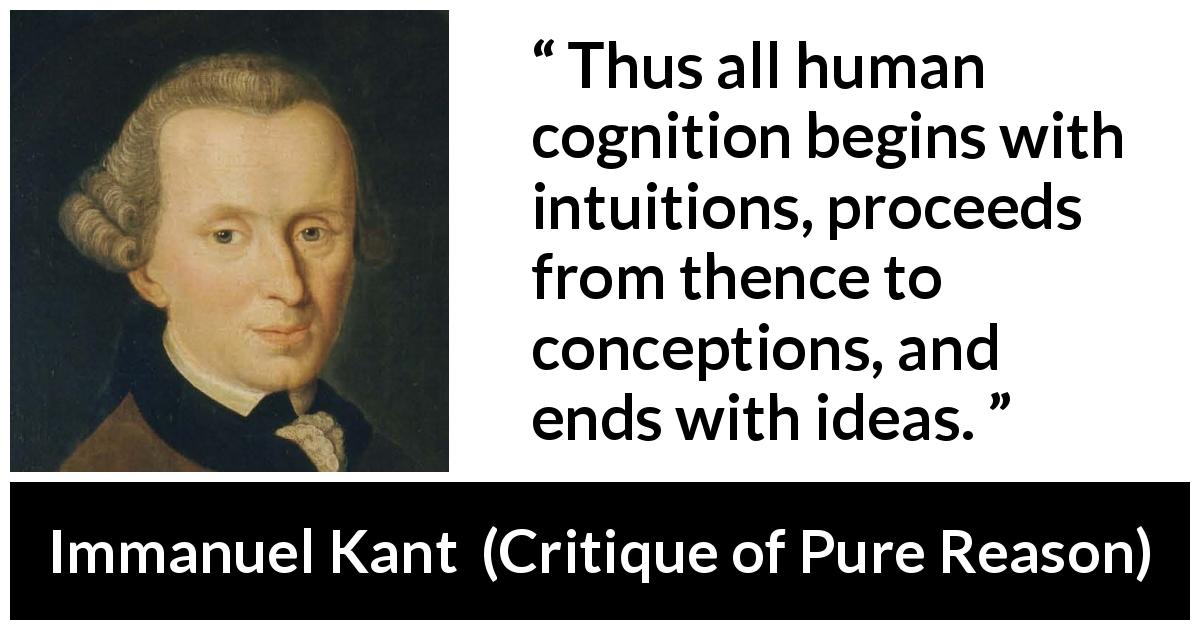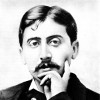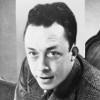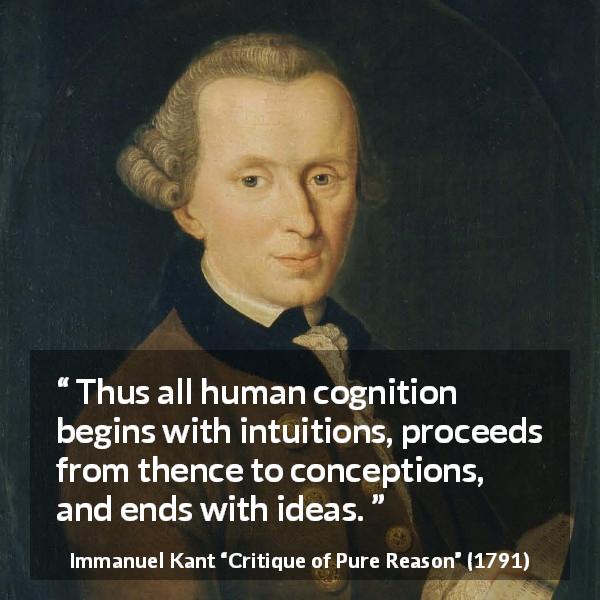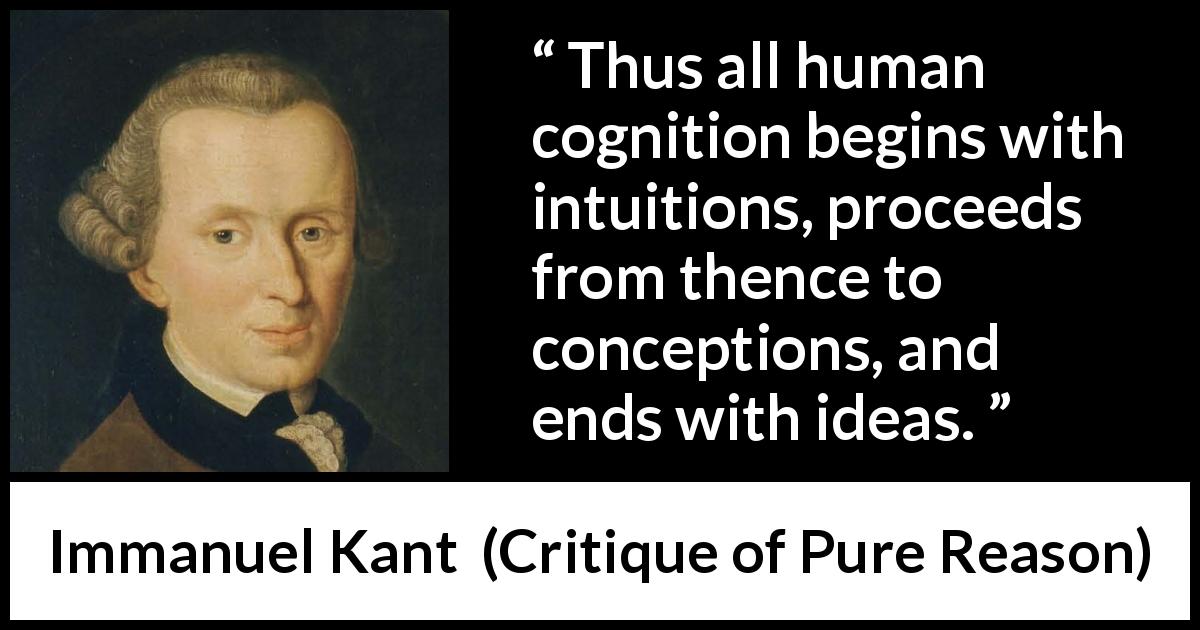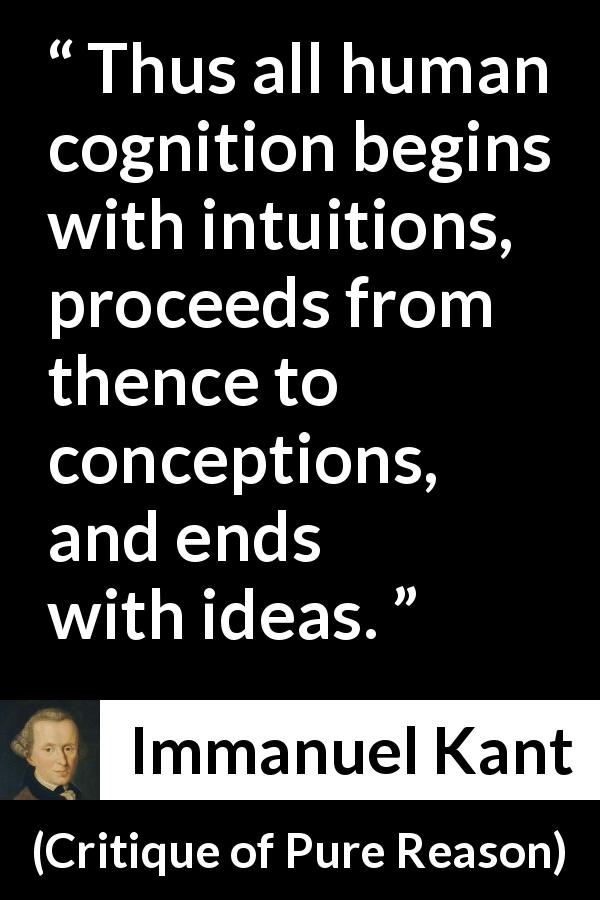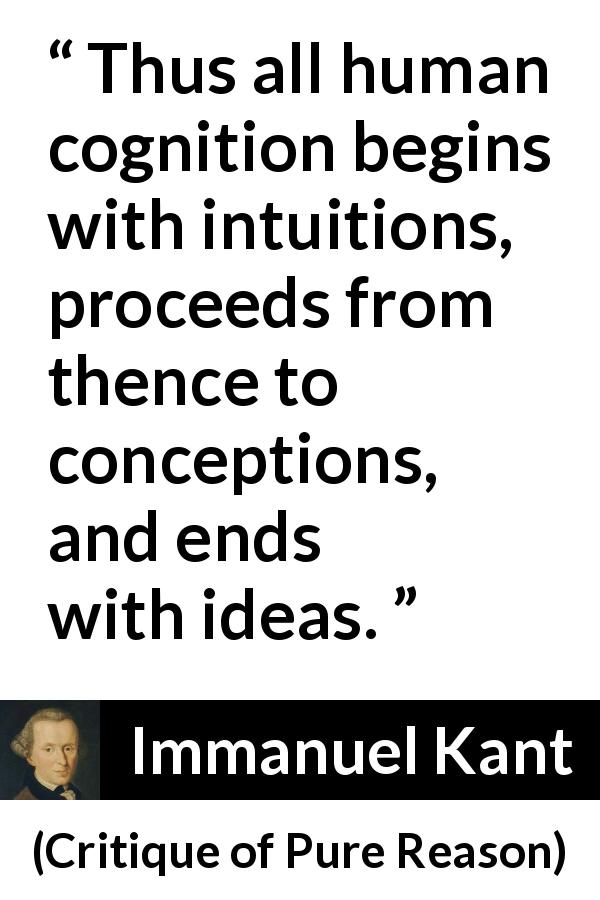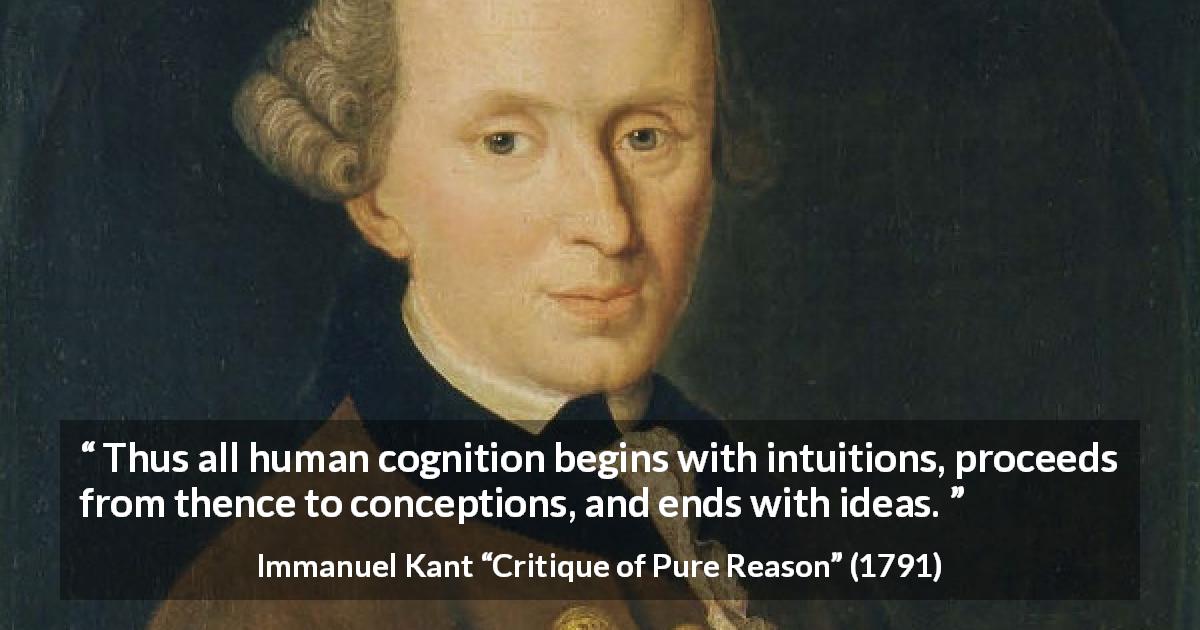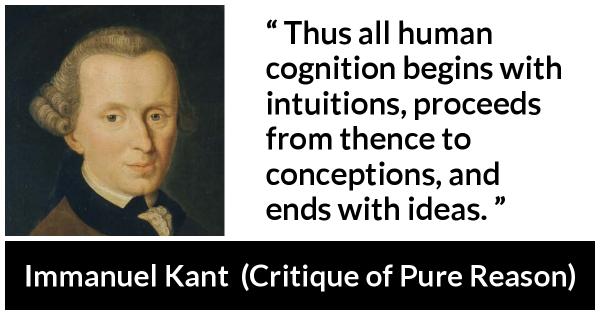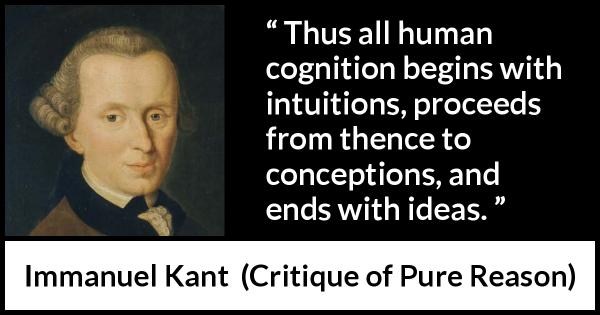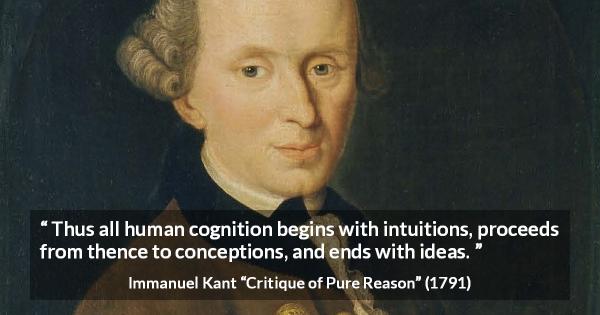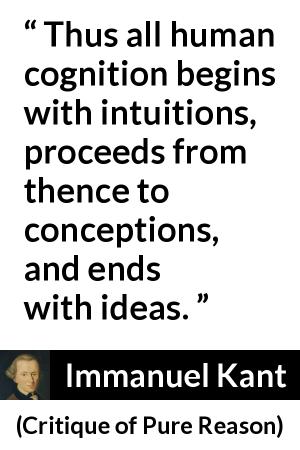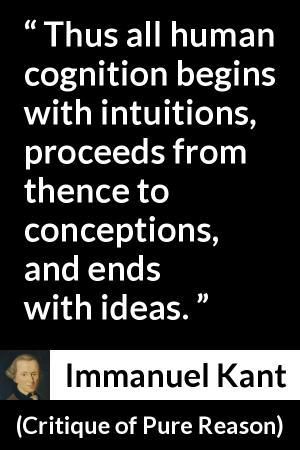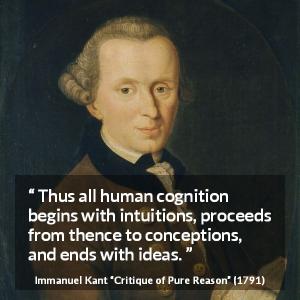“ Thus all human cognition begins with intuitions, proceeds from thence to conceptions, and ends with ideas. ”
Immanuel Kant, Critique of Pure Reason (1791). copy citation
| Author | Immanuel Kant |
|---|---|
| Source | Critique of Pure Reason |
| Topic | intuition ideas conception |
| Date | 1791 |
| Language | English |
| Reference | |
| Note | Translated by J. M. D. Meiklejohn |
| Weblink | http://www.gutenberg.org/files/4280/4280-h/4280-h.htm |
Context
“But, on the other hand, if misunderstood and employed as constitutive principles of transcendent cognition, they become the parents of illusions and contradictions, while pretending to introduce us to new regions of knowledge.
Thus all human cognition begins with intuitions, proceeds from thence to conceptions, and ends with ideas. Although it possesses, in relation to all three elements, a priori sources of cognition, which seemed to transcend the limits of all experience, a thoroughgoing criticism demonstrates that speculative reason can never, by the aid of these elements, pass the bounds of possible experience, and that the proper destination of this highest faculty of cognition is to employ all methods, and all the principles of these methods, for the purpose of penetrating into the innermost secrets of nature, by the aid of the principles of unity (among all kinds of which teleological unity is the highest), while it ought not to attempt to soar above the sphere of experience, beyond which there lies nought for us but the void inane.” source
Thus all human cognition begins with intuitions, proceeds from thence to conceptions, and ends with ideas. Although it possesses, in relation to all three elements, a priori sources of cognition, which seemed to transcend the limits of all experience, a thoroughgoing criticism demonstrates that speculative reason can never, by the aid of these elements, pass the bounds of possible experience, and that the proper destination of this highest faculty of cognition is to employ all methods, and all the principles of these methods, for the purpose of penetrating into the innermost secrets of nature, by the aid of the principles of unity (among all kinds of which teleological unity is the highest), while it ought not to attempt to soar above the sphere of experience, beyond which there lies nought for us but the void inane.” source
